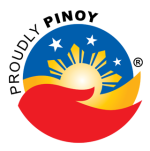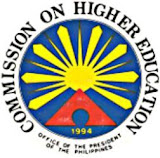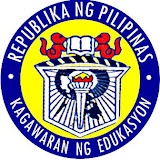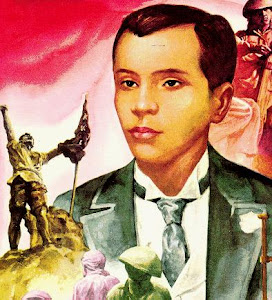COURSE TITLE : PHILIPPINE HISTORY WITH POLITICS AND GOVERNANCE
CLASS SCHEDULE: Tuesday, 9:00am-12:00nn, Room 106
COURSE DESCRIPTION
This course covers the study of Philippine history – pre-colonial, colonial, and post-colonial periods, and the development, organization, and operation of the Philippine political system with emphasis on the present.
COURSE OBJECTIVES
At the end of the course, the students should be able to:
1. Recognize and appreciate the importance of study of Philippine history;
2. Understand the fundamental concepts, theories and issues in Philippine politics and governance and the systematic frameworks and tools of political analysis;
3. Acquire knowledge and understanding on the history of Philippine government, politics, and society as a key to unraveling the present structure and dynamics of Philippine political system; and
4. Develop an interest in the political system equipped with knowledge on his/her rights, duties, and responsibilities as a member of the Philippine society.
COURSE REQUIREMENTS
MAJOR EXAMS – Read the instructions carefully and follow them. A student must be able to understand, distinguish, and synthesize the ideas studied in class. All answers must be written in a direct, comprehensive, and concise manner. In case of essays, long paragraphs, flowery words, convoluted sentences, and flattery will not impress the instructor. Remember that the exam is YOUR exam; it is meant to test your knowledge, not the instructor’s. Four (4) major exams are usually given throughout the semester – prelim, midterm, pre-final, and final exam. However, no actual test will be administered during the prelim exam. In lieu of this, you are required to submit a five-page historical account of one barangay within TaguigCity on the scheduled preliminary examination. This is not an individual work. The class will be divided into several groups with 5-6 members in each group. Details will be given during the first meeting of the class. For the midterm exam, a combination of objective and subjective types will be given, e.g., true or false, multiple choice, matching type, essays, etc. No exam will be given during the pre-final period, too. This will be done by the same set of groups. Each group will conduct an interview with a government official (barangay chairman, city councilor, vice-mayor or mayor, others). Data to be gathered during the interview include the political background of the official, his/her projects and other contributions to the people of Taguig, and how the official responds to different challenges and issues as he/she performs his/her duties as a government official. Submit the actual interview saved in a data disc (VCD or DVD), a transcript of the interview, and a synthesis of the things you learn during the interview (10 pages) during the pre-final exam. No late submissions will be accepted. The final exam will cover the entire course. It will contain 50 multiple-choice questions.
QUIZZES – Four (4) quizzes – two quizzes each for midterm and final – will be given in this course. All questions will be objective, i.e., no essay tests will be given in all of your quizzes.
ASSIGNMENTS – Throughout the semester, I will be giving you assignments that you need to submit on the designated time and day. Some of these assignments will be submitted online. It is your responsibility to check your emails and this website for important notes and announcements.
I. CLASS ORIENTATION
A. Housekeeping and discussion of syllabus
B. Introduction to the terms history, politics, and government and their significance
II. THE PRE-COLONIAL PHILIPPINES
A. The Setting – Geographical Features of the Philippines
B. Pre-Colonial Culture, Customs, and Practices
III. DURING THE COLONIAL PERIOD
A. The Spanish Period
B. The American Period
C . The Japanese Period
IV. THE REPUBLIC
A. The Administration of Manuel Roxas
B. The Administration of Elpidio Quirino
C. The Administration of Ramon Magsaysay
D. The Administration of Carlos Garcia
E. The Administration of Diosdado Macapagal
F. The Administration of Ferdinand Marcos
G. The Administration of Corazon Aquino
H. The Administration of Fidel Ramos
I . The Administration of Joseph Estrada
J . The Administration of Gloria Arroyo
K. The Administration of Noynoy Aquino
V. FOUNDATIONS OF PHILIPPINE POLITICS AND GOVERNANCE
A. Political and Economic History and Geography
B. The Present Social and Economic Situation
C. Population, Religion, Culture, and Ideology
D. The Philippine Constitution
VI. THE PHILIPPINE STATE AND SOCIETY
A. The Citizens and the Public
B. Interest Groups, Social Movements, and Civil Society
C. Political Parties and Elections
VII. THE PHILIPPINE GOVERNMENT
A. Forms and Systems of Government
B. The Three Branches of Government and the Constitutional Commissions
C. The Bureaucracy, Local Government
VIII. THE PHILIPPINE POLICY-MAKING PROCESS
A. The Decision – Making Process
B. Economic, Social, and Political Domestic Policies
C. Foreign Policy
IX. THE PHILIPPINE POLITICAL CHANGE
A. The Liberal – Democratic State and the Politics of Pluralism
B. The Socialist Alternative and the National Democratic Movement
C. Prospects for Peace and Conflict Resolution
D. Democratization









